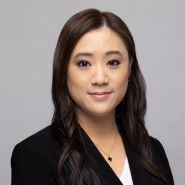Short-Term Uncertainties after Arthrex
- November 20, 2019
- Article
Associated People
Associated Practices
Associated Technologies
The Federal Circuit in a precedential opinion in Arthrex, Inc. v. Smith & Nephew, Inc., vacated and remanded a final written decision of the Patent Trial and Appeal Board (PTAB), finding that the Administrative Patent Judges (APJs) are not constitutionally appointed, violating the Appointments Clause. Arthrex, Inc. v. Smith & Nephew, Inc., No. 2018-2140 (Fed. Cir. Oct. 31, 2019). The opinion in Arthrex also indicates that an Appointments Clause challenge should be timely raised on appeal, and thus, is waived when not presented in an appeal that has passed or been decided. Notably:
We conclude that challenges under these circumstances should be incentivized at the appellate level and accordingly the remedy provided is appropriate. We have decided only that this case, where the final decision was rendered by a panel of APJs who were not constitutionally appointed and where the parties presented an Appointments Clause challenge on appeal, must be vacated and remanded. Appointments Clause challenges are “nonjurisdictionalstructural constitutional objections” that can be waived when not presented. Freytag, 501 U.S. at 878-79. Thus, we see the impact of this case as limited to those cases where final written decisions were issued and where litigants present an Appointments Clause challenge on appeal.
Although the Arthrex ruling will likely only affect cases in the short term as it affects cases in between a final written decision and prior to a decision from the Federal Circuit, it remains uncertain how the Appointments Clause challenges will be applied in the interim, and how PTAB itself would respond to the cases remanded to a new panel of APJs.
Timing
A recent non-precedential opinion in Sanofi-Aventis Deutschland GmbH v. Mylan Pharm. Inc. indicates that Sanofi filed a letter asking the court to vacate and remand the PTAB’s final written decision to be reconsidered by a new panel of APJs in view of Arthrex. However, the majority rejected the request, holding that Sanofi failed to raise the Appointments Clause challenge in the opening brief. Sanofi-Aventis Deutschland GmbH v. Mylan Pharm. Inc., No. 2019-1368, -1369 (Fed. Cir. Nov. 19, 2019); see also Customedia Technologies, LLC v. Dish Network Corp., Nos. 2018-2239, -2240, -2310, 2019-1000, -1002, -1003, -1027, -1029 (Fed. Cir. Nov. 1, 2019).
Judge Newman disagrees, in a dissenting opinion, noting that as the Arthrex ruling was issued after the appeals were already filed, the appellant did not have the opportunity to raise an Appointments Clause challenge in its opening brief. Therefore, Judge Newman contends that Sanofi should be entitled to the same benefit of the Arthrex ruling, as the change in the law occurred while the case was on appeal. Dow Chem. Co. v. Nova Chems. Corp. (Can.), 803 F.3d 620, 629.
There may be further cases in which appellants file a request raising the Appointments Clause challenge, where the opening briefs have already been filed prior to the Arthrex ruling. It remains to be seen whether the Federal Circuit maintains the decision in Sanofi-Aventis, or if the decision is reconsidered.
On Remand
The Arthrex decision holds that on remand, a new panel of APJs must be designated and a new hearing granted, to prevent the same Board judges from ‘rubber-stamping’ their earlier unconstitutionally rendered decision. However, the Federal Circuit further notes:
Finally, we see no error in the new panel proceeding on the existing written record but leave to the Board's sound discretion whether it should allow additional briefing or reopen the record in any individual case.
Although the door appears to be open for parties with recently decided PTAB cases on appeal to raise the Appointments Clause challenge, the final note of the Federal Circuit fails to provide clear guidance on the latitude that would be allowed on remand, and leaves these decisions to the ‘sound discretion’ of the new panel of APJs.
Recent Publications
Federal Circuit Holds Prosecution History Disclaimer Applicable to Design Patents
by Sana Tahir, Law Clerk and Andrew Ollis, Partner










 Counseling & Strategic Advice
Counseling & Strategic Advice IP Transactions
IP Transactions Litigation
Litigation PTAB Proceedings
PTAB Proceedings Technology Transfer
Technology Transfer Trademark & Designs
Trademark & Designs U.S. Patent Procurement (Application Drafting & Prosecution)
U.S. Patent Procurement (Application Drafting & Prosecution)








